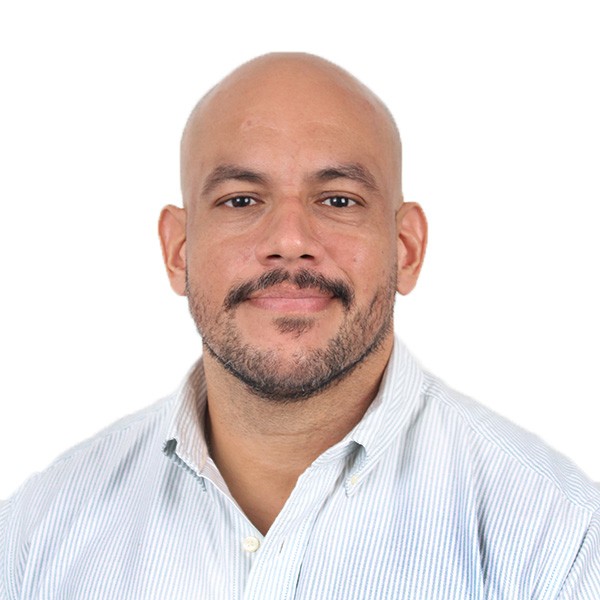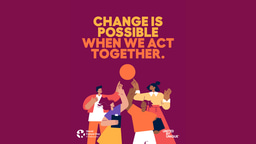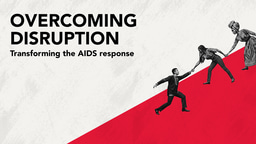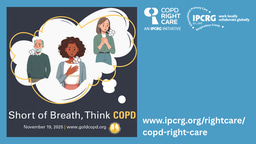World AIDS Day 2025 - Q&A with Dr. Robert Paulino-Ramírez
Published in Social Sciences, Sustainability, and General & Internal Medicine

About the Researcher
 Dr. Robert Paulino-Ramírez is a Dominican physician–scientist specializing in infectious diseases, molecular microbiology, and public health. He earned his MD degree from the Universidad Autónoma de Santo Domingo in the Dominican Republic, and completed postgraduate studies in microbiology, public health, and epidemiology. He pursued fellowship training in Infectious Diseases and HIV at Weill Cornell Medical College in New York, and holds professional diplomas in Tropical Medicine and Hygiene from the London School of Hygiene & Tropical Medicine, as well as in Emerging Viral Pathogens and Biosafety Level 4 Unit Management from the Universidad Autónoma de Madrid, Spain.
Dr. Robert Paulino-Ramírez is a Dominican physician–scientist specializing in infectious diseases, molecular microbiology, and public health. He earned his MD degree from the Universidad Autónoma de Santo Domingo in the Dominican Republic, and completed postgraduate studies in microbiology, public health, and epidemiology. He pursued fellowship training in Infectious Diseases and HIV at Weill Cornell Medical College in New York, and holds professional diplomas in Tropical Medicine and Hygiene from the London School of Hygiene & Tropical Medicine, as well as in Emerging Viral Pathogens and Biosafety Level 4 Unit Management from the Universidad Autónoma de Madrid, Spain.How does your research relate to the SDGs?
My research aligns closely to the Sustainable Development Goals (SDGs), particularly 3, 10 and 17, which are aimed to advocate for good health and well-being, reducing inequalities, and establishing partnerships for the goals. Through studies on HIV prevention, stigma reduction, and access to care among vulnerable populations, I aim to strengthen equitable health systems and advance the UNAIDS 95-95-95 targets, focused in LMIC countries. Our implementation projects, such as stigma-reduction interventions (FRESH and its Spanish version CREEV), PrEP/PEP/DoxyPEP adoption studies, and evaluations of diagnostic innovations for HIV and TB, contribute to reducing health inequities and promoting universal access to quality healthcare.
Why did you decide to go into your field of research?
I chose to focus on HIV and infectious diseases because they reveal the profound intersection between biology, social justice, and human dignity. Early in my medical training, I witnessed how stigma, misinformation, and systemic barriers could be as harmful as the virus itself. This realization inspired me to pursue research that not only improves diagnostics and prevention tools, but also transforms the way healthcare systems treat people—with respect, compassion, and evidence-based care.
How has knowledge of HIV and AIDS developed over the course of your career?
When I began my career, HIV research in the Caribbean primarily focused on treatment access, and epidemiological studies to untangle the epidemic. Over time, the field has evolved to include implementation science, behavioral and structural determinants, and community engagement as essential pillars of the response. We now understand that ending the HIV epidemic requires integrating biomedical advances, what we called an “HIV Toolbox”—such as PrEP, PEP and recently the scientific breakthrough in HIV prevention; the long-acting ART—along with social interventions that address stigma, gender inequities, and mental health. The shift from a purely clinical model to a people-centred and equity-driven approach has been transformative.
What challenges do those from low- and middle-income countries in particular face?
One of the main challenges, and in my opinion the most crucial, is the lack of research funding. Research in most Latin American countries is still seen as a luxury, not a necessity. Many researchers in the Global South have to rely on external funding mechanisms that don't always reflect local needs and don't close the existing knowledge gap in those regions. There is also the persistent issue of brain drain and insufficient local research capacity. Moreover, community mistrust in science and health leaders, stigma, and structural inequalities—rooted in poverty and discrimination—continue to undermine HIV prevention and care. Despite these barriers, local innovation and resilience have driven remarkable progress, particularly through South-South collaborations and community-based approaches.
What are your hopes for progress in the future?
My hope is that we can have a future where we eliminate HIV, but first we must ensure that people have access to life-saving treatments. Even though programs offer these treatments, the stigma is still so intersecting that even healthcare providers don't realize its impact. A world where we can work alongside communities to provide answers to their needs—nothing about them without them. I envision a new generation of regional researchers leading locally driven studies, ensuring that evidence from the Global South informs global policy. Ultimately, the goal is not only to end the HIV epidemic but also to build more just, inclusive, and compassionate health systems that reflect the dignity of every person.
Follow the Topic
-
BMC Global and Public Health

An open access, transparent peer review journal publishing outstanding and influential research and opinion of broad interest to all professional communities involved in global and public health research, policy-making, implementation and delivery worldwide.
Related Collections
With Collections, you can get published faster and increase your visibility.
Understanding the HIV care continuum: Progress and challenges
BMC Global and Public Health is calling for submissions to our Collection on understanding the complexities and advancements in global health frameworks. This Collection will highlight key findings and challenges in maintaining continuity of care for populations affected by HIV across diverse regions.
This Collection aims to explore the multifaceted nature of HIV care, examining the ongoing challenges and recent advances in care delivery systems. We welcome contributions that offer a comprehensive understanding of how access to care, quality of treatment, and sustained engagement with healthcare systems impact health outcomes for individuals living with HIV.
Potential topics include but are not limited to:
The role of diagnosis and early detection in improving long-term health outcomes
Strategies for improving linkage to care and retention in care
The impact of antiretroviral therapy in managing HIV
Barriers to viral suppression and achieving optimal care continuity
Innovations in pre-exposure prophylaxis (PrEP) for at-risk populations
The influence of socioeconomic, cultural, and political factors on HIV care accessibility
This Collection aims to contribute to a more thorough and collaborative understanding of HIV care challenges worldwide, focusing on solutions and the pathways needed to support people living with HIV, ensuring their access to effective, ongoing care. We look forward to receiving innovative and impactful research that will push the boundaries of our current knowledge.
We encourage work from local, regional, national, and global partnerships and collaboration among multidisciplinary scientists using multiple methodologies. We ask that authors be careful to use non-stigmatizing/preferred language in their manuscripts as outlined in relevant language guidelines for their respective fields.
This Collection supports and amplifies research related to SDG 3: Good Health and Well-being and SDG 10: Reduced Inequalities.
All manuscripts submitted to this journal, including those submitted to collections and special issues, are assessed in line with our editorial policies and the journal’s peer-review process. Reviewers and editors are required to declare competing interests and can be excluded from the peer review process if a competing interest exists.
Publishing Model: Open Access
Deadline: Mar 18, 2026
Food security, nutrition, and dietary trends
BMC Global and Public Health is calling for submissions to our Collection on food security, nutrition, and dietary trends. These are interconnected elements that profoundly impact global health and well-being. As the world grapples with rapid population growth, climate change, and economic disparities, the challenges surrounding food access, quality, and sustainability have intensified. This Collection aims to gather diverse research that examines these complex relationships, focusing on how dietary patterns, food availability, and nutritional status influence overall health outcomes. By exploring the multifaceted nature of food systems, this Collection seeks to showcase pathways to achieve improved food security and nutritional health worldwide.
The goal of this Collection is to build a comprehensive body of knowledge that informs policy and practice. We encourage submissions that investigate:
Impact of dietary patterns on health outcomes
Addressing food insecurity through policy
Role of ultra-processed foods in nutrition
Personalized nutrition and dietary therapy
Nutritional supplements for malnutrition
This Collection supports and amplifies research related to SDG 2: Zero Hunger and SDG 3: Good Health and Well-Being.
We encourage work from local, regional, national, and global partnerships and collaboration among multidisciplinary scientists using multiple methodologies. We ask that authors be careful to use non-stigmatizing/preferred language in their manuscripts as outlined in relevant language guidelines for their respective fields.
All manuscripts submitted to this journal, including those submitted to collections and special issues, are assessed in line with our editorial policies and the journal’s peer-review process. Reviewers and editors are required to declare competing interests and can be excluded from the peer review process if a competing interest exists.
Publishing Model: Open Access
Deadline: May 28, 2026





Please sign in or register for FREE
If you are a registered user on Research Communities by Springer Nature, please sign in